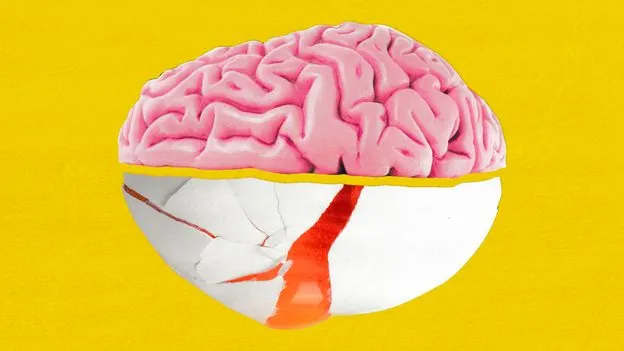
Unlocking the Power of Choline: The Brain-Boosting Nutrient You’re Probably Missing
2025-04-09
Author: Ying
Discover the Hidden Gem: Choline
Choline may not be a household name, but this often-overlooked nutrient is essential for our brain health and overall well-being. Recent studies suggest that increasing your choline intake can significantly enhance cognitive performance and reduce anxiety. So, are you getting enough of this nutrient?
What is Choline and Why Do We Need It?
Choline is a vital organic compound, crucial for the healthy functioning of our nervous system. While it’s not classified as a vitamin or mineral, its importance cannot be overstated. Emerging research highlights its role in preventing neurodevelopmental disorders like ADHD and dyslexia, making it a superstar in the realm of nutrition.
The Impact of Choline on Cognitive Development
Research indicates that adequate choline during pregnancy can dramatically enhance a baby's cognitive skills. In studies, mothers who supplemented with choline during pregnancy gave birth to children with significantly higher cognitive processing speeds.
Essential Functions of Choline in the Body
Choline is present in every cell of our body and plays a pivotal role in liver function, fat transport, and cell membrane integrity. A deficiency could lead to issues like fatty liver disease and even hinder fetal brain development.
Choline’s Role in Brain Health
Often dubbed the "brain nutrient," choline is necessary for producing acetylcholine, a neurotransmitter essential for memory and learning. Higher choline intake has been linked to better memory performance in adults and may even protect against neurodegenerative diseases like Alzheimer's.
Mental Health Benefits of Choline
But the benefits of choline extend beyond cognitive function. Studies have shown a correlation between higher choline intake and reduced anxiety levels, as well as a lower risk of depression, making it essential for mental well-being as well.
Choline and Bone Density
Choline may also influence bone health by reducing homocysteine levels, a compound associated with heart disease and osteoporosis. Higher dietary choline has been linked to increased bone density, suggesting it may help combat bone loss.
The Crucial First 1000 Days
The significance of choline is even more pronounced during the first two years of a child’s life. Pregnant women with higher choline intake have been shown to have children who perform better cognitively, highlighting the nutrient's role in fetal development.
Are You Getting Enough Choline?
Guidelines recommend 400mg of choline daily for adults, with higher amounts for pregnant and breastfeeding women. Common sources include eggs, chicken, and beef. However, studies show many people fall short of these recommendations.
Navigating Choline Sources
Eggs are among the richest sources of choline, but for those on plant-based diets, options like tofu, peanuts, and soybeans can help bridge the gap. Despite some concerns about vegan diets lacking choline, supplementation is widely available.
The Growing Recognition of Choline’s Importance
As research continues to unveil choline's vast health benefits, awareness is growing within the medical community. Experts hope that this nutrient will soon take center stage in discussions about brain and overall health.




 Brasil (PT)
Brasil (PT)
 Canada (EN)
Canada (EN)
 Chile (ES)
Chile (ES)
 Česko (CS)
Česko (CS)
 대한민국 (KO)
대한민국 (KO)
 España (ES)
España (ES)
 France (FR)
France (FR)
 Hong Kong (EN)
Hong Kong (EN)
 Italia (IT)
Italia (IT)
 日本 (JA)
日本 (JA)
 Magyarország (HU)
Magyarország (HU)
 Norge (NO)
Norge (NO)
 Polska (PL)
Polska (PL)
 Schweiz (DE)
Schweiz (DE)
 Singapore (EN)
Singapore (EN)
 Sverige (SV)
Sverige (SV)
 Suomi (FI)
Suomi (FI)
 Türkiye (TR)
Türkiye (TR)
 الإمارات العربية المتحدة (AR)
الإمارات العربية المتحدة (AR)